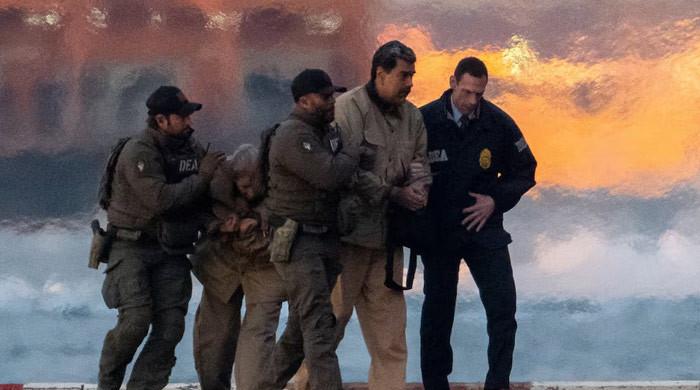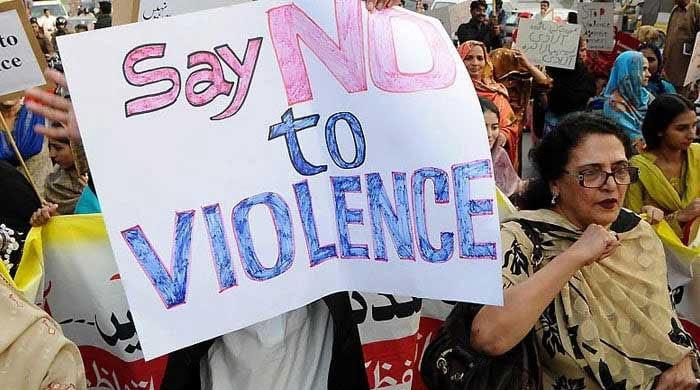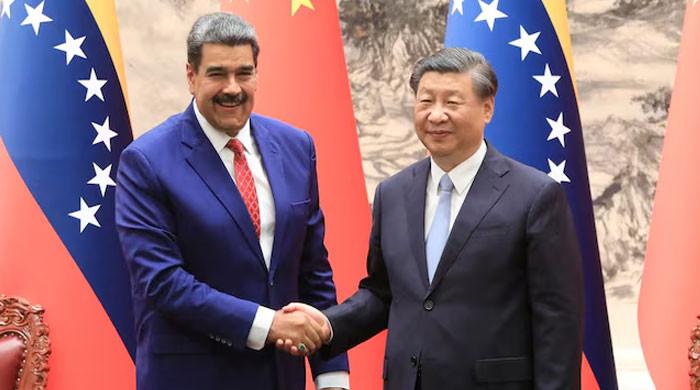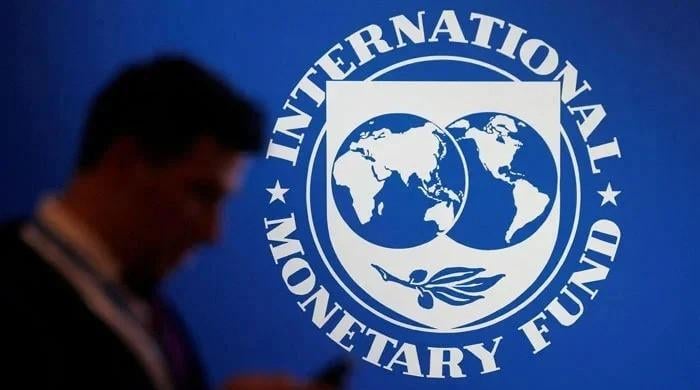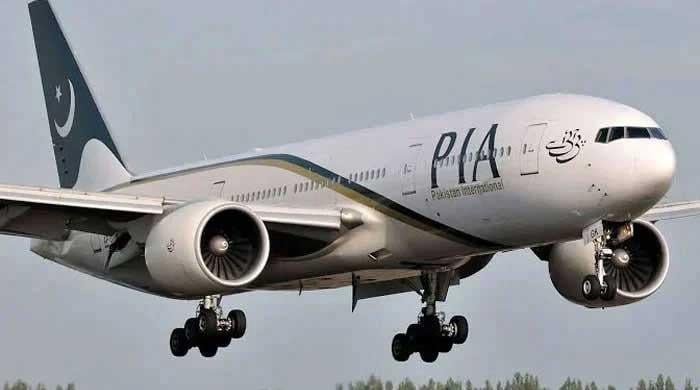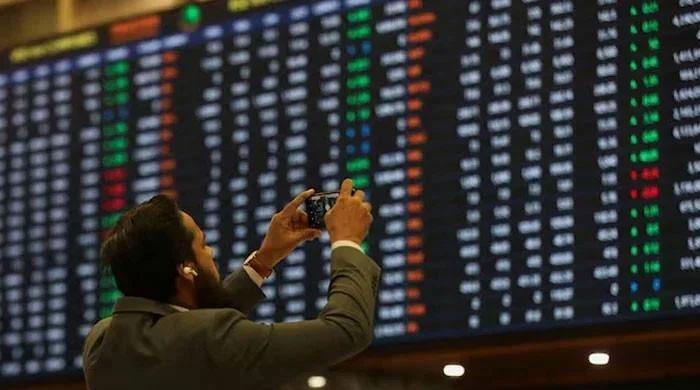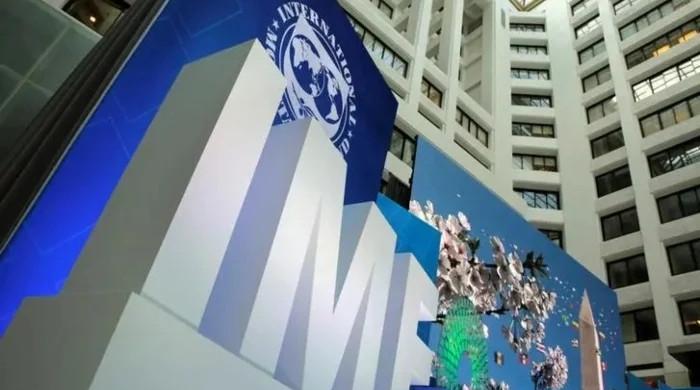The Nawaz Sharif I know
'If anything were to happen to Nawaz Sharif on PM Imran Khan’s watch, it would be difficult for PTI to regain their position in Punjab,' writes Mazhar Abbas
November 21, 2019
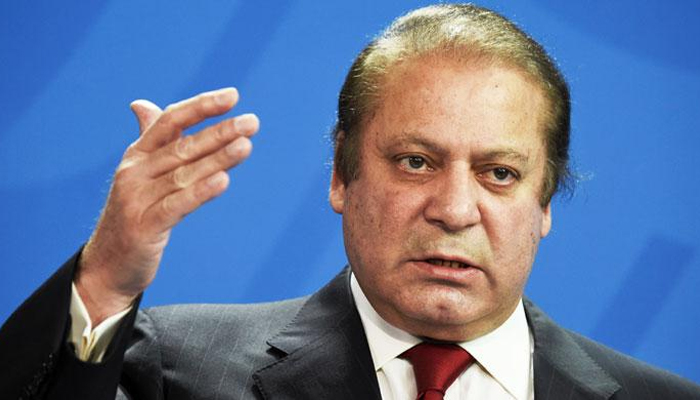
“Zindagi ke safar may guzar jaty hain jo maqam, wo phir nahi atey [The places you pass in the journey of life never return],” hummed the former prime minister, Nawaz Sharif, when I interviewed him a few years back at his residence in Lahore.
“Mian sahib, would you allow me to record this?” I asked, hoping it could add a descriptive aspect to my feature-length piece.
He smiled, and then shook his head: “No, please let it be. Yeh toh bus aise hi ga raha tha [I was singing just like that].” He then proceeded to sing a few tunes of Mukesh in my presence.
When I walked out that night, the song played like an endless loop in my head. Earlier, when I had met Sharif’s lawyer, Khawaja Naveed, he told me that the former prime minister would spend in days in the prison in 1999 singing the same song.
Last year, Nawaz Sharif was back in jail over graft charges. His health, since the 1990s, has deteriorated sharply, especially after his wife passed away. According to independent doctors, and his own, the leader of the Pakistan Muslim League-N (PML-N) needs urgent treatment for a number of ailments, including a heart condition.
As for his politics, it, too, received a serious setback following the 2017 verdict by the Supreme Court in the Panama Leaks case.
For now, the ailing prime minister is in London, seeking specialised medical treatment. This past week, the ruling Pakistan Tehreek-e-Insaf (PTI), a rival party to the PML-N, hesitated to let him travel until the Lahore High Court (LHC) granted him leave to exit the country for four weeks. An extension in his stay, the court ordered, could be granted on the basis of progress of his health.
For the first time, Pakistan watched as its former primer was taken out of the country in an air ambulance, a specially-equipped aircraft that is used to transport the sick. Next to Mian sahib was his brother, Shehbaz Sharif, and his private physician, Dr Adnan Khan. As the plane left the tarmac, Sharif left behind his beloved daughter, Maryam Nawaz Sharif.
Maryam, who accompanied her father to prison last year, was also released on bail in October. But her passport has been kept by a court to prevent her from travel just as yet.
Nawaz Sharif has been in politics for over 30 years. His past has been both interesting and controversial. He has been elected prime minister for a record three times, and yet, not once has been able to complete his term.
Another interesting feature of his terms has been his dealings with successive army chiefs, and a love-hate relationship with the establishment. A man, who was brought into power by the establishment to counter former Prime Minister Benazir Bhutto, later become the first voice of resistance to rise from Punjab in 2007, after signing a Charter of Democracy with Bhutto.
To his credit also is his ability to transform a traditional party of the establishment, the Pakistan Muslim League, into a political juggernaut. Today, the PML-N is the largest opposition party in Pakistan.
But it is still premature to say how history would judge him.
Would it remember him as a three-time prime minister and the leader of a large political group? Or will it forever consign him to the bin of disgraced leaders, since the verdict against Sharif carried references to The Godfather and the Sicilian mafia, and the highest court in Pakistan declared him neither “sadiq” nor “ameen”.
But even the strongly-worded verdict could not dent Mian sahib’s vote bank. His party workers and voters insist that the cases were all politically motivated. No prominent PML leader — parliamentarian or Senator — has fled the party since the verdict was announced.
Even then, today, there is a big question mark over Sharif’s future.
If he recovers completely, would he return to reclaim his place in politics? Let’s not forget that his appeal against the court order in still pending in another courtroom. If that were to also go against him, will his daughter then carry on his legacy? But let’s say that she, too, is forced out of the political arena, what are then the chances of the party remaining together and strong under the leadership of his younger brother, Shehbaz Sharif?
God forbid, but if something were to happen to Sharif, could he be remembered as another Zulfiqar Ali Bhutto? In either case, it is important even for his rival, Prime Minister Imran Khan, that Nawaz Sharif recovers and returns to Pakistan.
As a Karachi-based journalist, I can't claim of knowing Sharif like I knew Benazir Bhutto, Altaf Hussain or Asif Ali Zardari and even Imran Khan. But the little I’ve known about him through reporting is that he is a changed man after 2007, from the Nawaz Sharif of the 80s and 90s. In those days, he would be groomed by people like General Hameed Gul and Hussain Haqqani.
Since then, his critics and loyalists would agree, he has transformed his politics. In 2013, Sharif set some good examples, such as allowing the nationalist National Party to form government in Balochistan. He didn’t even try to topple the PTI government in Khyber Pakhtunkhwa. Although he mishandled the situation in Sindh, which affected his relationship with former President Asif Ali Zardari.
The distrust between the two still persists but as their health deteriorates, the spotlight is now on the next generation — Bilawal Bhutto-Zardari and Maryam Nawaz Sharif.
Their common political rival is Prime Minister Imran Khan, who has launched an anti-corruption drive. But if anything were to happen to Nawaz Sharif on Khan’s watch, it would be difficult for the PTI to regain their position in Punjab — the PML-N’s stronghold.
Post-script: Prior to the 2017 verdict, the only time I saw Mian sahib tense was on the day the 2000 hijacking case was decided. On that day, Justice Rahmat Hussain Jafferi acquitted all the other accused, including Shahbaz Sharif but sentenced Nawaz Sharif to life imprisonment. As soon as the judge pronounced the judgement before a jam-packed court room in Clifton, Karachi, his daughter Maryam Nawaz Sharif stood up from amongst the crowd of men and raised the slogan, "Go Musharraf Go."
—Abbas is a senior columnist and analyst of GEO, The News and Jang. He tweets @MazharAbbasGEO




